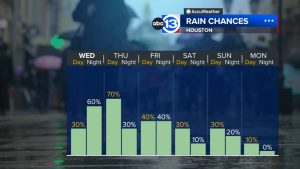
Houston Independent School District (HISD) Superintendent Mike Miles has made a U-turn on the implementation of a contentious aspect of the district’s principal evaluation system, following an intense three-hour public outcry during the board of manager’s meeting on March 21.
Before the meeting convened, 117 district principals received notifications indicating they were at risk of termination based on mid-year screenings conducted through the principal evaluation system. The focal point of contention was a ranking system that would have automatically led to the dismissal of approximately 10% of principals categorized in the lowest tier.
Although the board managers had no plans to vote on the issue during the meeting, approximately 150 community members attended to voice their apprehensions regarding the outcomes of the mid-year screening.
Miles released a statement around 2 a.m. on March 22 after the board’s return from executive session, declaring, “The proficiency screener rating will not be used in the evaluation of principals or other campus administrators in any adverse employment decisions for 2023-24.” He further added, “The superintendent will continue to use instructional data and student achievement data in the exercise of the discretion outlined in board policy.”
Taking a deeper dive into the evaluation system, board managers had sanctioned it in October to determine principal salaries for the 2024-25 academic year. The system categorized principals into six groups, ranging from “Exemplary II” to “Progressing I.” According to the system’s guidelines, principals scoring “Proficient I” or above would retain their positions, while those falling under “Progressing I” would face removal.
While the ranking system won’t influence employment decisions this year, Miles asserted that student achievement data, predominantly derived from test scores, along with instructional data from classroom observations and evaluations, would still play a role in assessing principals’ employment statuses.
At a news conference on March 22, Miles expressed uncertainty regarding whether the district would proceed with terminating 10% of underperforming principals.
In response to the superintendent’s decision, stakeholders weighed in with their perspectives. Elliot Delgado, an 11th-grade student at Carnegie Vanguard High School, expressed concern over his school’s principal not being rated as proficient, citing Carnegie’s outstanding performance. Community member Eileen Harrell criticized the administration, stating her belief that the implementation of the evaluation system was rushed.
Reflecting on the public’s feedback, Miles emphasized its significance in the decision-making process. “There’s no question that the amount of feedback we received from the community at the board meeting is one part and a big part of why the board and I took a lot of time last night to really think through what we were hearing,” he remarked during the news conference. “I think it was good to hear some of the concerns and respond to them in a positive way.”









